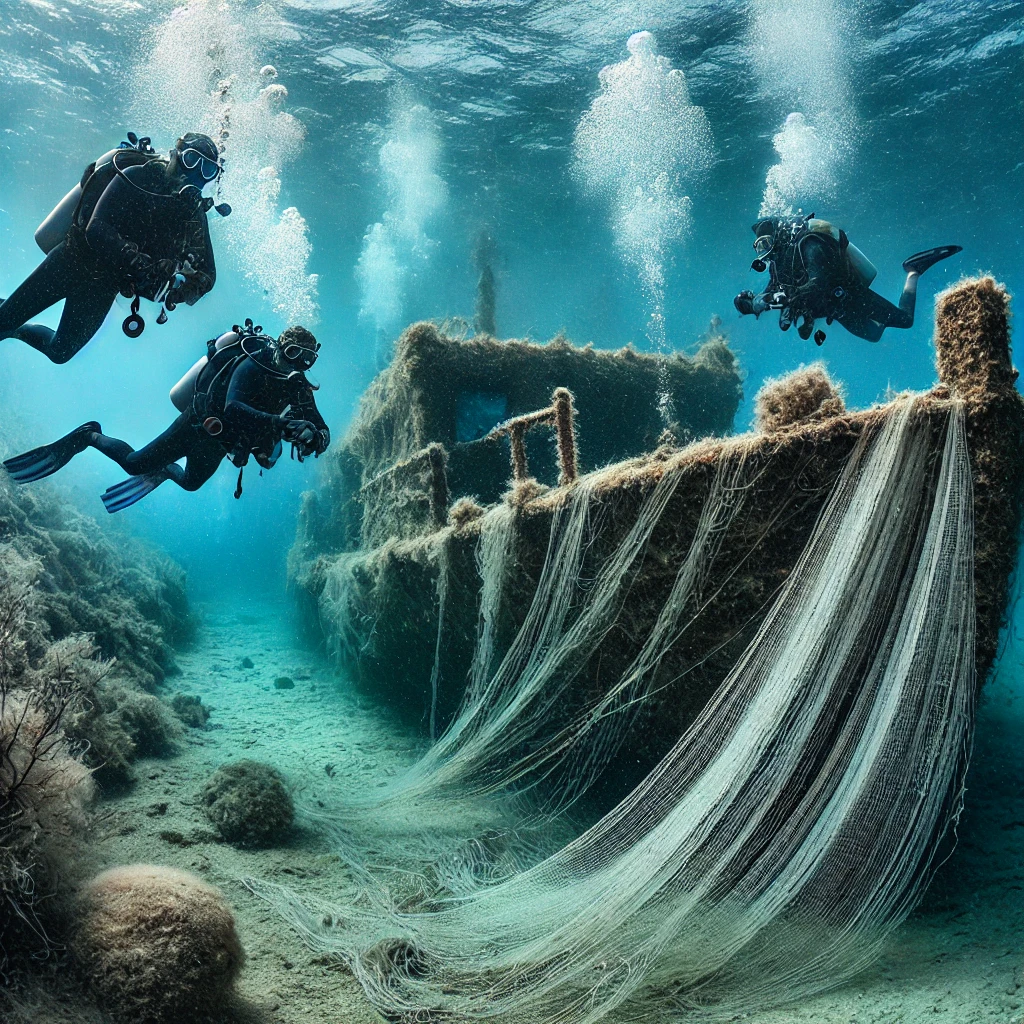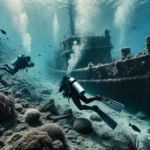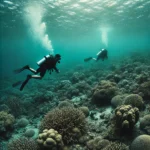| Malta Short Let: Cozy Stay in Gzira | |
|
Sliema Area Modern Designer Finished 2 Bedrooms + Games Room. First floor with Maltese Balcony Large back Terrace with swinging sofa Fully Airconditioned + Full Kitchen 3 TVs, including 65” with backlight. |
 |
|
Book Now: Google Travel | Direct (Cheapest) | Booking.com | Airbnb |
|
Diving in Malta is like stepping into a living, breathing history book, where every submerged wreck and vibrant reef tells a story waiting to be discovered. With crystal-clear waters and a rich tapestry of marine life, Malta is a haven for scuba enthusiasts from around the globe. However, even seasoned divers can find themselves caught off guard by the unique challenges that Maltese waters present. In this comprehensive guide, we’ll delve into the most common scuba diving mistakes in Malta and provide essential tips to ensure your underwater adventure is both safe and unforgettable.
Disclaimer: Scuba diving is an inherently risky activity that requires proper training, experience, and adherence to safety protocols. The information provided in this article is for general knowledge and should not be taken as a substitute for professional training or certification from a recognized scuba diving organization. Always dive within your training limits, use appropriate equipment, and consult with local dive professionals before attempting any dives. The author and publisher assume no responsibility or liability for any injuries, incidents, or damages resulting from the use or misuse of the information provided in this article. Dive safely!
Introduction to Scuba Diving in Malta
Nestled in the heart of the Mediterranean, Malta boasts some of Europe’s most spectacular dive sites. From the haunting wrecks of World War II ships to intricate underwater cave systems, the archipelago offers a diverse range of experiences catering to all skill levels. But with great beauty comes great responsibility—and a need for preparedness.
Before you embark on your journey, you might want to explore 30 fascinating facts about Malta to enrich your appreciation of this incredible destination.
Common Mistakes Divers Make in Malta
1. Underestimating the Entry and Exit Conditions
Many foreign divers, especially those used to sandy beaches in tropical locales, underestimate the rugged Maltese coastline. Shore dives often involve navigating over sharp and slippery rocks. Sites like Cirkewwa and Reqqa Point are particularly notorious for challenging entries and exits.
Imagine trying to hike over wet, uneven terrain while wearing a heavy backpack—that’s what entering the water here can feel like without proper preparation.
Tip: Invest in sturdy dive boots with good grip and always assess wave conditions before diving. Proper footwear can prevent slips and scrapes, making your dive start and end on a good note.
2. Ignoring the Current and Weather Conditions
Malta’s currents can be deceptive, and weather conditions can change rapidly, especially during the shoulder seasons. While the Mediterranean is often perceived as calm, areas around the islands, particularly near Comino, can have strong currents that become hazardous.
Did you know? The Gregale, a strong northeast wind, can suddenly appear and significantly alter sea conditions, making dives more challenging—even dangerous—for those unaccompanied by experienced guides.
Tip: Always check local weather forecasts and sea conditions. Understanding local wind patterns is crucial. Consider hiring a local guide who can provide insights into the day’s diving conditions.
For more travel planning tips, you might find our ultimate guide to European travel destinations in 2025 useful.
3. Poor Buoyancy Control Near Fragile Ecosystems
Some divers lack proper buoyancy control, especially in sensitive areas like caves or near reefs such as the Santa Marija Caves. This can lead to unintentional damage to delicate marine environments, like kicking coral or disturbing underwater habitats.
Think of buoyancy control as the art of floating effortlessly in space—you need precision to avoid bumping into things.
Tip: Practice buoyancy skills regularly and consider taking a refresher course. Not only does good buoyancy control protect the environment, but it also conserves your air and enhances your overall diving experience.
4. Failing to Understand Local Diving Regulations
Malta has strict regulations regarding diving permits, protected areas, and the use of dive guides for specific wrecks or deeper sites. Some wrecks are classified as historical heritage sites and require special permits or must be dived with certified local operators.
Tip: Before diving, familiarize yourself with local laws to avoid fines and penalties. Diving centers can provide the necessary information and assist with obtaining permits.
To make the most of your visit, consider a self-guided tour of Malta to explore both above and below the water.
5. Not Bringing or Renting the Right Equipment
Water temperatures in Malta can be deceiving. While it’s often thought of as a warm destination, temperatures can drop to around 14°C (57°F) in winter and early spring.
Tip: Bring or rent appropriate exposure protection. A 7mm wetsuit or even a drysuit is recommended during colder months. Additionally, always carry a Surface Marker Buoy (SMB), essential in areas with heavy boat traffic.
For accommodation options that cater to divers, check out Airbnb in Malta.
6. Overestimating Their Experience Level
Foreign divers, especially those experienced in calmer, tropical waters, sometimes overestimate their abilities when faced with Malta’s different conditions. The rugged shore entries, occasional strong currents, and deeper wrecks require divers to be comfortable with varying scenarios.
Overconfidence in diving is like attempting to drive a sports car on an icy road—you might have the skills, but the conditions demand extra caution.
Tip: Honestly assess your skill level and consider taking advanced training or hiring a local guide for more challenging dives.
If you’re considering a longer stay to improve your skills, you might be interested in becoming a Malta digital nomad.
7. Lack of Awareness of Boat Traffic
Malta’s popularity means its waters are teeming with boats, especially during peak season. Divers unfamiliar with heavy boat traffic may fail to use SMBs properly or neglect to remain aware of their surroundings when surfacing, leading to dangerous encounters.
Tip: Always deploy an SMB during ascent and be vigilant. Think of it as wearing high-visibility clothing when cycling on a busy road—you need to make yourself seen.
8. Underestimating the Depth of Famous Wrecks
Malta is renowned for its impressive wrecks like the Rozi, the P31, and the Um El Faroud. These wrecks are deep enough to require careful planning regarding bottom times and decompression limits.
Tip: Use a dive computer and plan your dives meticulously. Be aware of how quickly depth can affect your no-decompression limits to avoid decompression sickness.
For a detailed exploration of Malta’s wrecks, refer to our Malta shipwreck diving guide.
9. Misjudging the Impact of Nitrogen Narcosis
Diving deeper sites like the Blue Hole increases the risk of nitrogen narcosis, which can impair judgment and lead to disorientation.
It’s akin to the feeling of having one too many drinks—the world becomes fuzzy, and decision-making falters.
Tip: Recognize the symptoms of nitrogen narcosis and limit your depth accordingly. Always dive within the limits of your training and experience.
10. Not Hiring Local Guides for Advanced or Complex Dives
Malta offers complex dive sites, including caves and intricate wrecks, that require detailed local knowledge.
Tip: Hiring a local guide enhances safety and enriches your experience. They can show you hidden gems and help you navigate hazards you might otherwise miss.
For family-friendly activities when you’re not diving, check out the best things to do in Malta with kids.
Specific Hazards in Malta
Strong Currents
Areas like Comino can have strong currents that aren’t immediately apparent from the surface.
Tip: Always assess current conditions and plan your dive accordingly.
Jellyfish
While not exclusive to Malta, jellyfish can be present, especially during warmer months.
Tip: Wear protective suits and be cautious in areas where jellyfish are known to frequent.
Underwater Caves
Malta’s underwater caves are stunning but can be disorienting and hazardous without proper training.
Tip: Only attempt cave dives if you’re certified and experienced in cave diving techniques.
For insights into Malta’s natural wonders, consider exploring the Malta historic water trail: Springs and aqueducts.
Book a short term rental apartment for your diving holiday in Malta.
Apartment in Sliema
Apartment in Gzira
Tips for Safe Diving
- Dive with a Buddy: Never dive alone, especially in unfamiliar waters.
- Check Equipment: Regularly inspect your gear for any issues.
- Follow Local Regulations: Compliance ensures safety and preservation of dive sites.
- Stay Hydrated and Rested: Fatigue can impair judgment and physical ability.
- Educate Yourself: Knowledge is your best tool for avoiding accidents.
Case Studies of Accidents
Case Study 1: Decompression Sickness Due to Depth Misjudgment
A foreign diver underestimated the depth of the Um El Faroud wreck. Without proper planning, he exceeded his no-decompression limit and ascended too quickly, resulting in decompression sickness.
Lesson Learned: Always plan your dive and dive your plan. Use a dive computer and adhere strictly to decompression limits.
Case Study 2: Injury from Poor Entry Techniques
At Reqqa Point, a diver without appropriate footwear slipped on the slippery rocks during entry, sustaining a serious leg injury that ended his diving holiday.
Lesson Learned: Proper equipment and assessing entry conditions are crucial for safety.
Conclusion and Summary of Key Points
Malta offers an underwater paradise rich in history and natural beauty, but it’s essential to approach diving here with respect and preparation. By being aware of the common scuba diving mistakes in Malta, you can take proactive steps to ensure your dives are safe and enjoyable.
Key Takeaways:
- Prepare Adequately: Understand the unique conditions of Maltese dive sites.
- Respect the Environment: Practice good buoyancy to protect marine life.
- Stay Informed: Keep abreast of weather and sea conditions.
- Equip Yourself Properly: Use appropriate gear for the conditions.
- Leverage Local Expertise: Guides can enhance safety and enrich your experience.
For more on what Malta has to offer, don’t miss our articles on food in Malta and why couples should visit Malta.
Remember: The sea is a magnificent but unforgiving environment. Respect it, and it will reward you with unforgettable experiences.
By avoiding these common blunders and respecting the unique challenges of diving in Malta, you’re well on your way to a safe and memorable underwater adventure. Happy diving!
Book a short term rental apartment for your diving holiday in Malta.
Apartment in Sliema
Apartment in Gzira








